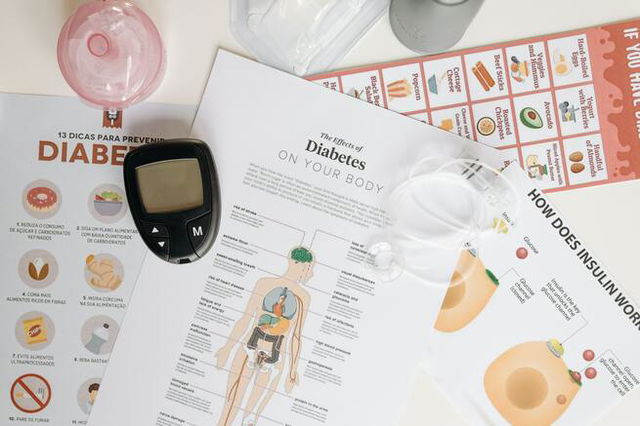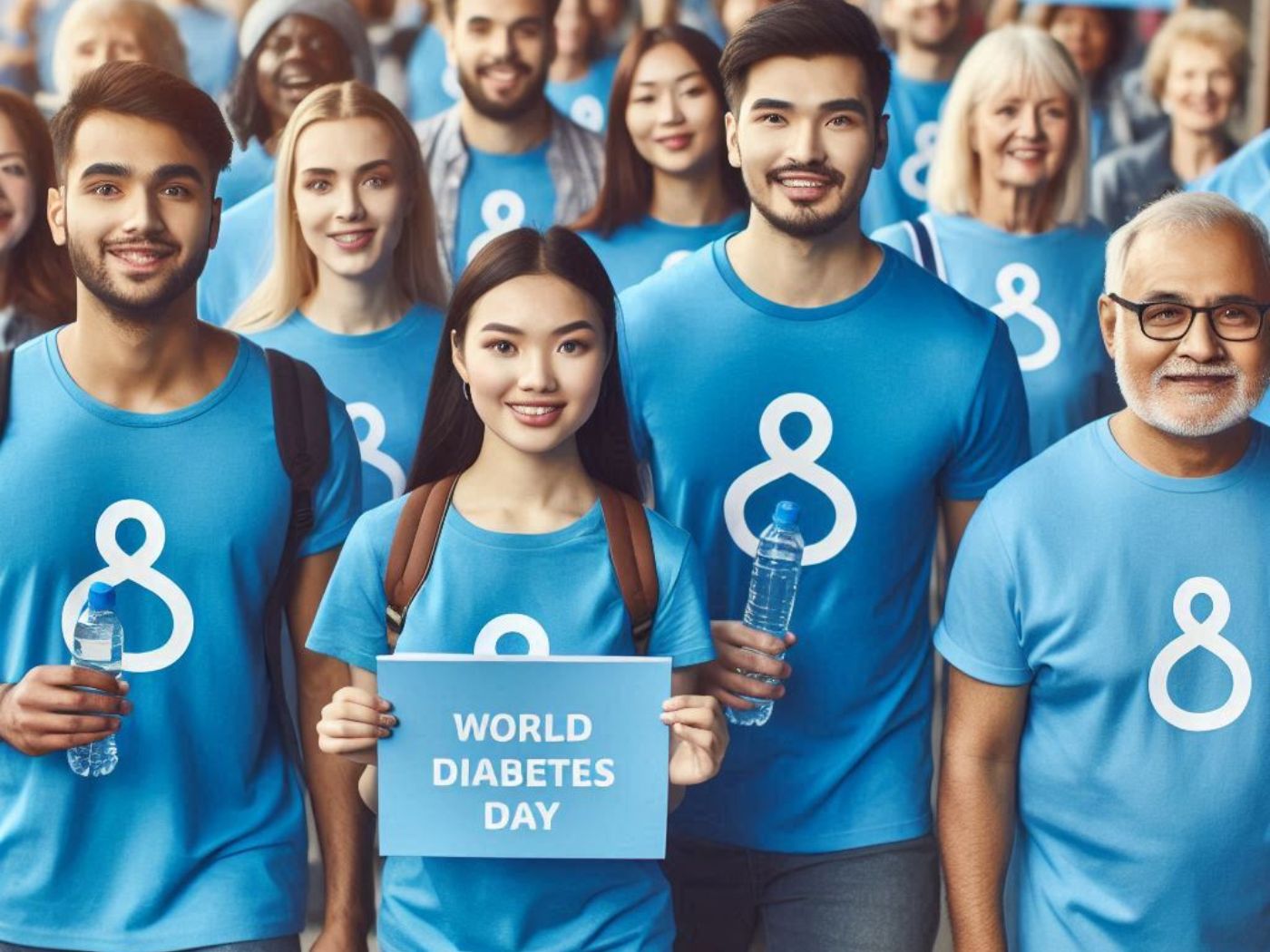- Calendar
- Calendar 2025
- November
- World Diabetes Day
World Diabetes Day
On November 14th every year, World Diabetes Day is observed to raise awareness around the globe about diabetes.
It was created by the International Diabetes Federation (IDF) to educate people about the different types of diabetes and how they affect different ages and groups, lifestyles, and the treatment options that are available.
The theme for World Diabetes Day 2024-26 is Diabetes and Well-being . The theme will focus on the importance of well-being in diabetes care to
- promote comprehensive support,
- address mental and emotional challenges, and
- emphasize holistic care beyond the physical aspects of the condition.

The Origin of World Diabetes Day
World Diabetes Day was established by the IDF and the World Health Organization in 1991. At the time, the number of people diagnosed with diabetes was rapidly rising around the world.
Hence, both organizations thought it would be good to have a day dedicated to educating people about diabetes and raising awareness about the disease.
November 14 was chosen to commemorate this day as it was the birthday of Sir Frederick Banting who discovered insulin in 1922.
World Diabetes Day was officially recognized by the United Nations as a UN Holiday in 2006. This helped the global awareness campaign about diabetes reach over 1 billion people in over 160 countries.
The World Diabetes Day logo is a blue circle on a white background adopted in 2007 which symbolizes the global community coming together to respond to the diabetes epidemic.
Every year there is a different theme for World Diabetes Day, as is usual for United Nations holidays. Themes have ranged from “Protect our Future: Diabetes Education and Prevention” in 2013, to “Women and diabetes – our right to a healthy future.” in 2017, and “The Nurse and Diabetes” in 2020.
It is important to educate people about diabetes and its prevention, as diabetes is growing around the world at a fast pace, and it is entirely preventable and non-communicable.
However, once someone develops Type II diabetes, the disease becomes incurable and costly, and it affects people of all ages. It is necessary to improve people's health and raise awareness about the dangers of diabetes.
Type of Diabetes
There are three main types of diabetes: Type 1 diabetes, Type 2 diabetes, and gestational diabetes. Here's a brief explanation of each:
Type 1 Diabetes:
- The autoimmune condition where the immune system accidentally attacks and destroys the insulin-producing beta cells in the pancreas is Type 1 diabetes.
- The exact cause is unknown, and it usually develops in childhood or adolescence but can occur at any age.
- People with Type 1 diabetes require insulin injections or an insulin pump to regulate their blood sugar levels because their bodies cannot produce insulin.
Type 2 Diabetes:
- Type 2 diabetes is characterized by insulin resistance, where the body's cells do not respond effectively to insulin, and the pancreas eventually cannot produce enough insulin to maintain normal blood sugar levels.
- It is often associated with lifestyle factors, such as obesity, physical inactivity, and poor diet.
- Type 2 diabetes is more common in adults, but it can also develop in children and adolescents, especially in cases of obesity.
- It can often be managed with lifestyle changes, including diet and exercise, oral medications, or insulin injections, depending on the severity.
Gestational Diabetes:
- Gestational diabetes occurs during pregnancy when a woman's body cannot produce enough insulin to meet the increased needs, usually due to hormonal changes.
- It typically develops in the second or third trimester of pregnancy.
- Gestational diabetes can lead to complications for both the mother and baby if not managed properly, but it often resolves after childbirth.
- Women with gestational diabetes are at a higher risk of developing Type 2 diabetes later in life.
There are also less common forms of diabetes, such as monogenic diabetes and secondary diabetes, which result from specific genetic mutations or other medical conditions.
How World Diabetes Day is Observed
In the United States, World Diabetes Day events are organized by the American Diabetes Association.
Activities for World Diabetes Day include conferences, seminars, and speeches to educate. There is also the spread of information through the distribution of flyers, encouraging people to get tested for diabetes. TV shows, newspapers, and websites will have some kind of information dedicated to World Diabetes Day.

Other Celebrations
-
Feb 13 Thu
-
Mar 20 Thu
-
Mar 24 Mon
-
Apr 07 Mon
-
Sep 29 Mon
-
Jan 17 Sat

World Diabetes Day - Next years
Saturday, 14 November 2026
Sunday, 14 November 2027
Tuesday, 14 November 2028











